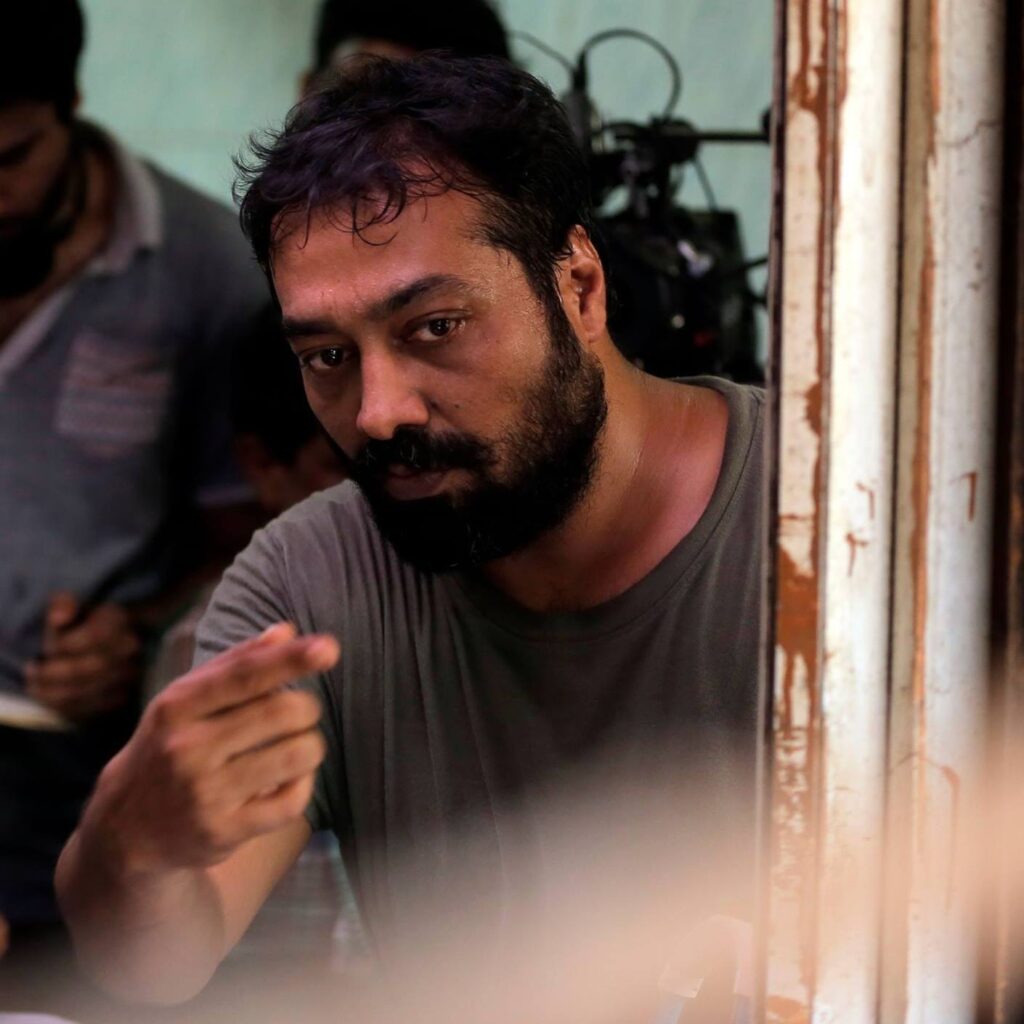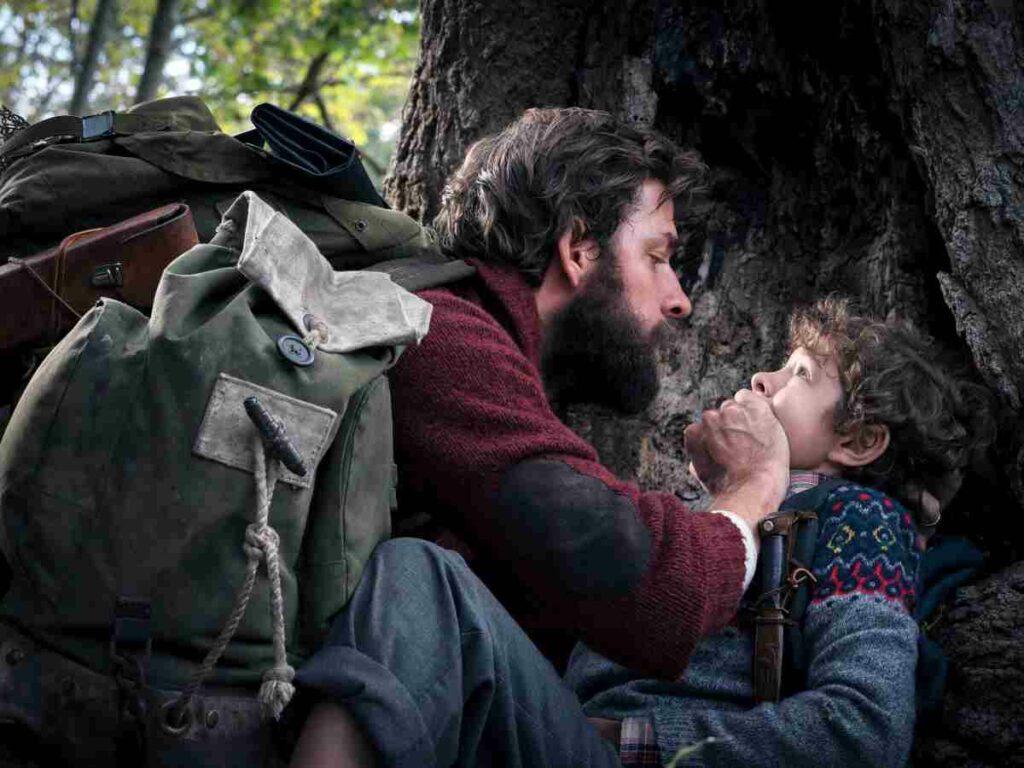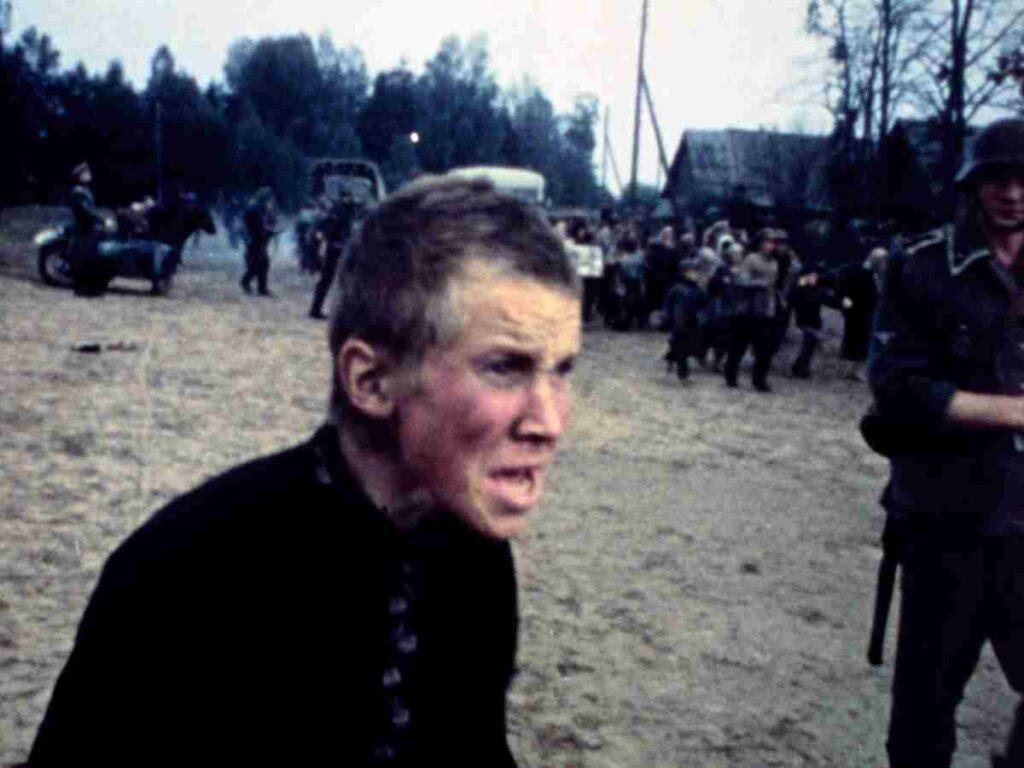Anurag Kashyap may have started at the periphery in Bollywood but in a decade-and-a-half, he has swiftly carved out his own space in modern Indian cinema. As a zoology graduate from Varanasi, Kashyap didn’t have many connections with the gatekeepers of Bollywood. Starting out, he established himself as a screenwriter working with directors like Hansal Mehta and Ram Gopal Varma. His early directorial outings faced myriad of problems with the censors and received a tepid commercial response. With movies like Black Friday, Dev D, and Gulaal though, Kashyap gradually gained a cult following. And 2012 saw his signature brand of ‘violence and gore’ cinema (Gangs of Wasseypur) win international acclaim.
He also became an instrumental force in propelling the indie landscape. Of course, it would be ludicrous and immature to hail Kashyap as the greatest Indian filmmaker ever. On many occasions, I’ve felt the director’s rogue gritty approach to be repetitive and inane. But besides being an unconventional filmmaker, his most fascinating quality is his unbridled support for parallel Indian cinema. His continuing admiration and generous praises for regional cinema (especially Tamil films) are well-known.
So, here goes my ranking of all Anurag Kashyap movies till date:
Recommended: 10 Most Disturbing Hindi Films
13. Return of Hanuman (2007)
Anurag Kashyap’s first three films, while applauded in certain quarters were a disaster at the box-office. For his fourth directorial venture, he interestingly took up an animation project. Return of Hanuman is a saucy children’s film set in modern-day India, merging the mythology of Lord Hanuman. Though it has elements of a Bollywood potboiler, there’s freshness and creativity in Kashyap’s handling. The flaw with the film is its too impulsive and less coherent narrative. Nevertheless, this is a fairly entertaining kids-tale with few good moments for adult audiences too.
12. Bombay Velvet (2015)
Anurag Kashyap’s foray into high-budget filmmaking turned out to be a disappointment. Kashyap often picks his cues from films. The source material for Bombay Velvet is historian Gyan Prakash’s ‘Mumbai fables’. But the director’s visual tone takes heavy references from the 1930s US prohibition-era movies. The retro-look does look splendid, although the storytelling lacked coherence and real emotions. There’s also little to fault in the performances of lead pair (Ranbir Kapoor & Anushka Sharma). Eventually, Bombay Velvet felt too clinical and contains none of the intense energy that drives Kashyap’s singular vision.
11. Paanch (2003)

Anurag Kashyap’s debut feature tells the story of five good-for-naught rock-band members, entangled in the world of drugs and sex. The five get involved in a kidnapping plan which spirals downwards into further chaos. Kay Kay Menon brilliantly plays the hot-headed guy, whose unchecked malevolence keeps things unpredictable. The film didn’t see a domestic theatrical release. The colorful expletives and depiction of drug abuse raised the censors’ concern. Irrespective of the narrative flaws, Paanch boasts the visceral energy that announces Kashyap’s distinct qualities. Even in this early feature, he brings ‘realness’ to the grimy, un-Bollywood-ish atmosphere.
10. No Smoking (2007)
No Smoking is a rare abstract, surrealistic drama. Although labeled as Lynchian and Kafkaesque, the film nowhere comes close to the profundity rendered by those legendary figures. Kashyap’s work merely offers surface pleasures and an attention-grabbing hallucinatory imagery. Yet, the experimental spirit keeps the twisted journey fulfilling to a point. John Abraham plays the protagonist K, a chain-smoker haunted by recurring nightmares. On his wife Anjali and best friend’s insistence, K takes up a Guru’s services to get rid of the habit. The narrative then freewheels into increasingly bizarre territories.
9. Manmarziyan (2018)
The story is old wine; it doesn’t lead here. Manmarziyan is a character-driven tale, of love, trust, betrayal. The age-old premise wrapped in a modern-day packaging centres around passionate, carefree lovers — fierce and fiery Rumi, and the reckless, committment-phobic Vicky — both fearless in the face of consequences. What happens when a sorted, mature, ‘husband-material’ Robbie walks into this love story? If you’re looking for novelty, Manmarziyan may not have much to offer. But the film boasts of brilliant performances in the leads and has its heart in the right place to make this worth your while.
8. That Girl in Yellow Boots (2010)
Anurag Kashyap’s mystery/drama tells the story of a British woman of mixed-origins, in search of her Indian father. Penned by Kashyap and lead actor Kalki Koechlin, this is a mood-piece set in a grimy Indian metropolis’ underground, driven by sexism, violence, and black money. Apart from pacing problems, the movie flounders due to a predictable series of dramatic cliches. The narrative lacks ambiguity and subtlety that’s necessary to depict such a complex character. Nevertheless, Kalki’s performance is intriguing. She manages to bring out the multiple facets of her character well.
Where to watch: Netflix
7. Mukkabaaz (2018)
In Mukkabaaz, Anurag Kashyap deals with the themes of caste inequality, religious fundamentalism, and venality surrounding the boxing ring. While it’s no Rocky or Raging Bull, the film has an earnest charm and rawness to it. The story revolves around Shravan, a boxer, who trains at a local UP gym, which is run by a gangster-ish Brahmin politician. Shravan falls in love with Sunaina, the Brahmin boss’ mute niece. She too is in love with him, which naturally leads to complications. Boxing in Mukaabaaz is used more like a canvas to depict one man’s struggle against the toxic forces of the Indian society.
Kashyap’s diffusion of political topicality is much timely, especially the sorry state of beef lynching.
6. Raman Raghav 2.0 (2016)

Raman Raghav 2.0 is a cat and mouse game between a serial killer and a cop. But this being an Anurag Kashyap feature, there are no heroes, and the cop revels in coke and violence. The narrative is divided into eight chapters, delineating Raghavan’s (Vicky Kaushal) journey down the crooked path. The police officer Raghav’s action ultimately kindles a sense of kinship within the notorious sociopath Raman (Nawazuddin Siddiqui).
Kashyap, as usual, delivers some gut-churning sequences, notably the one in which Raman pays visit to his estranged sister’s apartment. The director once again presents a portrait of urban psychosis through effective aural-visual choices. Nevertheless, the movie lacks depth irrespective of its myriad surface pleasures (and terrific performances).
5. Ugly (2014)

Staying true to its title, this crime-thriller is full of morally bankrupt people. The story kicks off with Rahul, an aspiring actor picking up his little girl Kali from the house of suicidal ex-wife Shalini. Shalini is now married to a police chief, who harbors a grudge against Rahul. The aspiring actor leaves his child to pick up a script for an audition from his agent. By the time he returns, Kali goes missing. Rahul is suspected of kidnapping his own child. And the three characters involved exacerbate the situation to serve their personal conflicts. Ugly is not a Hollywood-style child-kidnapping thriller with a cathartic ending. At its best, the film works as an exposé of societal malfeasance.
Kashyap envelops every scene with grit and gloom, extracting the right intensity and mood from the locations. However, the narrative made me emotionally numb after a point. That has to do with watching flawed characters’ relentlessly hitting rock bottom. Despite the haunting ending, Ugly’s perception of human condition still felt forced and totally unconvincing.
4. DevD (2009)

Anurag Kashyap’s cinema often starts from something familiar and clear and soon shapes into something unexpected and crazy. Dev D — the director’s own version of the classic self-destructive lover character — is no exception. Abhay Deol plays Dev, the son of a Chandigarh tycoon who returns home after finishing his studies in London. His love for Paro (Mahie Gill) remains undiminished. Their romance not only faces the usual obstacles like class conflict, but also has to put up with misunderstandings. The situation seems to be largely initiated by Dev’s self-centered, sexist behavior. While going through his self-destructive, drug-fueled downward spiral, Dev meets Chanda, a sex-worker whose back-story is centered around an MMS scandal. Interestingly, Chanda is a well-realized character. Her impulses, psychological pain are rendered in a much complex manner. Compared to her, Dev comes across as a uni-dimensional man-child.
DoP Rajeev Ravi and Kashyap deftly create an immersive atmosphere, underlining the miasma of dingy, urban corners. Adding to the film’s hypnotic visual tone is Amit Trivedi’s spectacular soundtrack.
Where to watch: Netflix
3. Black Friday (2004)

Based on Hussain Zaidi’s book, Anurag Kashyap’s gritty drama revolves around the infamous 1993 Bombay blasts. They left hundreds dead and thousands injured. The ruthless explosions were adjudged as retaliation for communal violence in Bombay against Muslims during December 1992 and January 1993. The narrative focuses on inspector Rakesh Maria’s police task force, formed after the bombing. Considering the highly charged subject matter, the film was banned (lifted after 20 months). While Kashyap condemns the action of the terrorists, he doesn’t present a pretty picture of the overzealous police officers. He’s critical of both sides in the unceasing Hindu-Muslim conflicts.
Kashyap and cinematographer Natarajan Subramaniam’s saturation of heavy brown and red color tones add to the film’s gritty realism. The film’s unwieldy and editorializing structure may prove exhausting for some viewers. However, it’s propulsive and potent commentary never gets diluted.
Watch Black Friday on Amazon Prime
2. Gulaal (2009)

This sociopolitical drama is one of Anurag Kashyap’s angriest but less self-indulgent works. Scripted by Raj Singh Chaudhary, Gulaal is a multi-layered and multi-character film on cultural imperialists and hypocrites, who instigate violence and hatred. The story revolves around the erstwhile royal Rajputana community’s attempts to undo the injustices inflicted on them. Kashyap lays out all his pet themes — fight for power, betrayal, deception, greed — in a smart and effective manner.
Gulaal boasts of terrific performances from Kay Kay Menon and Abhimanyu Singh. Barring few forced surrealistic juxtapositions, the director’s visual flourishes are quite intriguing and profound. Piyush Mishra’s musical score perfectly gels with the narrative, leaving a lasting impact.
1. Gangs of Wasseypur (2012)

This is clearly Kashyap’s best work to-date. The story spans close to seven decades and chronicles the dominance between warring factions in the small, coal-rich town of Wasseypur. The novel-style storytelling deals with themes like political corruption, family legacy, revenge, cultural strife, etc. It all starts with a mogul Ramadhir Singh deciding to kill a notorious outlaw named Shahid Khan. Split into two segments, the first part focuses on Shahid’s son, Sardar, who vows to avenge his father’s death. In the wonderful second part Sardar’s four sons get embroiled in a conflict with the enraged Qureshi clan.
The scope and ambition with which Kashyap treats this saga of betrayal and deceit is much subtle and deeper than the usual rise-and-fall arc. His visual acuity sets stage for some of the best set-pieces. For all its stomach-churning violence, gore and profanities, the characters and dramatic scenes are effectively realized. Altogether, it’s a perfect mix of history, social commentary, and crime-genre entertainment.
Watch Gangs of Wasseypur Part 1 on Amazon Prime
Watch Gangs of Wasseypur Part 2 on Amazon Prime
Special Mention – Sacred Games (2018)

This is the most audacious attempt in any genre of Indian filmmaking. The web series is so rooted in the Indian idiom — colloquial, raw, uninhibited and overwhelming — that it rings a bell of familiar disgust and delight. The ethos it captures mirrors abuse and depravity. You begin to wonder and look for a redeeming quality. Nawazuddin Siddiqui plays the role of his lifetime and surpasses himself. Saif Ali Khan’s controlled performance seethes with unrequited intensity. This is Anurag Kashyap at his best, clearly influenced by the lyrical gore of Tarantino. And I don’t know which scenes were directed by the equally brilliant Vikramaditya Motwane, but the sum of the parts emerges as greater than the whole. (By Sanjay Trehan)
Where to watch: Netflix
There we are! Which are your favourite Anurag Kashyap movies? Tell us your top 3 in the comments below.
Have something to share with our readers? Thoughts on a film you saw recently; an obscure piece of film trivia; or a film you just finished watching and can’t seem to get out of your head? Head over to our Submit section for details and shoot us a mail at info@flickside.com.
Follow @flicksidem and our Facebook channel for more updates!





1 thought on “Anurag Kashyap Movies Ranked From Worst To Best”
Comments are closed.